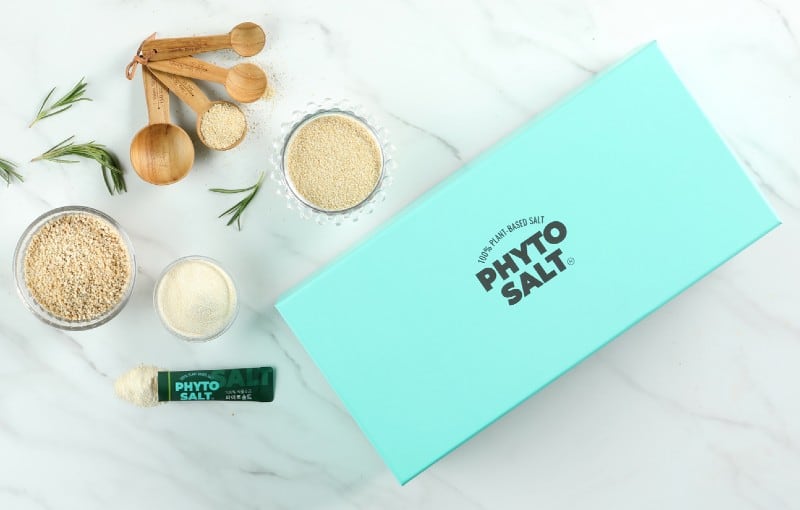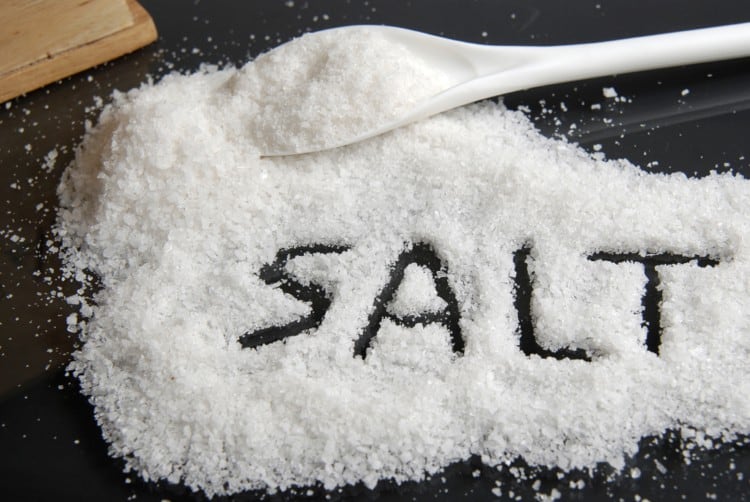The firm now has its eye on helping companies struggling with salt and sodium reformulation.
PhytoSalt was formally launched just last year, and at the time its ability to reduce the sodium content of food by 20% was already considered pretty groundbreaking, but the firm believes that its success in doubling this will give it the chance to gain broader recognition.
“There is no other salt in the world that can reduce sodium intake in the diet by 40% without the use of additives such as potassium chloride (KCl), which can have serious side effects,” PhytoCo CEO Duke Kim told FoodNavigator-Asia.
“Our healthy salt is made with 100% plant extracts without any sort of additives - This is possible because in addition to sodium chloride (NaCl), PhytoSalt also naturally contains many other mineral salts such as potassium chloride (KCl), magnesium chloride (MgCl2) and calcium chloride (CaCl2) which contribute to its salty taste.
“We achieved this via our continuous R&D and development of new technology to extract salts completely from Salicornia.”
PhytoSalt is naturally low in sodium due to its material source, which is the Salicornia plant. This salt-tolerant plant feeds off of melted salts in sea water in saline areas, leading to its naturally high salt content.
“Despite the high salt content, Salicornia metabolises the salts in order to overcome salt stress and has what we call the ‘perfect ratio’ of 6:1 sodium:potassium. The balance of sodium and potassium is very important for health, especially as potassium works to excrete sodium from the body,” Kim said.
“This ratio is definitely more beneficial for health in comparison with sea salt which has a 100:1 ratio, and refined table salt which has no potassium at all. With our new technology, we extract the minerals from Salicornia completely and directly, so PhytoSalt also has this perfect ratio.
“Salicornia plant cell membranes also filter out microplastics from seawater, so PhytoSalt is 100% microplastics-free. It has also been proven in preclinical trials to be effective on high blood pressure.”
Reformulation ambitions
With more and more governments and consumers placing emphasis on sodium content in packaged foods and some like Thailand even planning an upcoming salt tax for this year, many companies are working to reformulate lower sodium products but have found this to be a major challenge.
Kim believes PhytoSalt may hold the answer to this dilemma.
“For many years, one of the food industry’s biggest challenges has been to develop technology to reduce product sodium content without losing the salty flavor – but no good solution has been found yet,” he said.
“So far, the most representative solution developed by food companies has been low-sodium salt, which is generally made by artificially adding a large amount of KCl to existing salt (NaCl) as KCl has a similar salty taste.
“This method is very easy, but these artificial low-sodium salts (also called high-potassium salts) can have serious side effects such as hyperkalemia and renal failure - In this regard, PhytoSalt can actually be the best solution to this reformulation challenge and I believe our recent 40% reduction development will have a huge impact on the global food industry.
“It tastes just like salt and has very high applicability for various food types such as breads, cookies and chips, cereals, pasta and noodles, soup, confectionary, etc.”
PhytoSalt is currently retailing in South Korea on online platforms NAVER and Coupang for US$7 a box (30 sticks), and is in the process of launching on Amazon in USA and Europe.
“PhytoCo will be expanding the sales of PhytoSalt to China, Japan, and more APAC markets in the near future, as well as look to enter the B2B arena and work with global food companies in areas such as reformulation moving forward,” said Kim.





